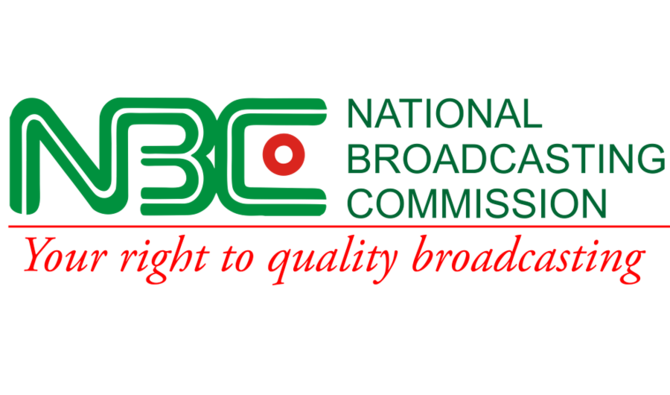Freedom of expression is a cornerstone of Nigerian democracy. This freedom is guaranteed in Chapter 4 Section 39 (1) of the Nigerian Constitution, which says: “Every person shall be entitled to freedom of expression, including the freedom to hold opinions, and to receive and impart ideas, without interference.” It elaborates further that “without prejudice to the generality of subsection (1) of this section, every person shall be entitled to own, establish and operate any medium for the dissemination of information, ideas and opinion.”
To consolidate this freedom, Section 22 of the Constitution states unequivocally that, “The press, radio, television and other agencies of the mass media shall at all times be free to uphold the fundamental objectives contained in this Chapter and uphold the responsibility and accountability of the government to the people.” As it were, the press is the mouthpiece of the people in a democracy.
However, since our return to democracy in 1999 and conducted seven elections to demonstrate that the rule of the people is being consolidated, the freedom of the press has continued to be eroded, getting worse after each political dispensation. Though fewer journalists have been killed or jailed as a result of state action, the Nigerian government has found legal ways to curtail the free press or curb the work of journalists and citizens in one form or another.
For instance, in a bid to tackle online fraud, the government in 2015 enacted the Cybercrime (Prohibition, Prevention, etc Act). This law is now being used to police journalists and suppress freedom on thoughts, by extending the meaning of cyberstalking to include critical reports about government policies and activities. This law has been used to frustrate investigative reporting, especially at the state level, where non-state actors have been used to physically assault journalists or the Nigeria Police Force made to illegally arrest and detain journalists.
Perhaps, one of the laws that glaringly violates freedom of expression and media is the National Broadcasting Corporation (NBC) Act 1999, as amended, which says in Section 2 (FUNCTIONS OF THE COMMISSION) that the NBC can “determine and apply sanctions (including where justified in the public interest) revocation of licenses of defaulting stations following findings of repeatedly material non-compliance with this Act, their license condition, or applicable provisions of the NBC CODE, which do not operate in accordance with the broadcast code and in the public interest.”
We believe that there is a need to review this section. Broadcast stations should not have to pay license fees in order to operate. That section of the Act should be expunged to enable all those who want to and are qualified to, operate broadcast stations.
The Act further says in Section 3.11.1(b), among other provisions that “the Broadcaster shall ensure that no programme contains anything which amounts to subversion of constituted authority or compromises the unity or corporate existence of Nigeria as a sovereign state”. The definitions of ‘subversion’ or ‘compromise’ of the country’s unity are determined by the NBC.
Under this law, on some occasions, radio and television stations have been compelled to pay hefty fines for airing certain contents which government was not comfortable with, even when they were in the public interest. We agree that there are instances, where contents that violate the broadcast code have been aired. But the regulator should find a way of addressing such rather than applying general sanctions. But for resistance by stakeholders in the media and journalism circle, government would have passed other laws that would make the practice of journalism more difficult than it is at the moment.
What both federal and sub-national governments in Nigeria did not achieve through obnoxious legislation, they attempt to realise through other means, especially a deliberate effort to cripple the media by denying them advertising, arm-twisting editors and blackmailing media owners. Sometimes, media organizations are blacklisted from accessing advertising from government agencies because they published or broadcast stories critical of those holding positions in government.
But, as it is generally admitted, without critical reporting, government will operate in a fool’s paradise, being ignorant of its shortcomings and areas it needs to make amendments.
Only last week, the world marked the Press Freedom Day. It is significant that it came a few weeks to the inauguration of a new government in Nigeria. We, therefore, urge the incoming administration to see journalists as partners in progress and that both can work together towards the development of the country.
We urge the administration to imitate countries that encourage not just the freedom of the press, but also the survival of the media. Countries that provide direct and indirect support to media organizations include Finland, France, Germany, United States, United Kingdom and Italy. Instead of intimidating and repressing the media, these countries encourage the media through diverse funding arrangements, like appropriated subsidies, advertising, and deliberate support for investigative reporting.
At a time when media revenue has continued to plunge on account of the Internet, some of these countries are coming up with strategies for supporting online platforms, among them Canada and Australia, which are insisting that news aggregators must pay a certain percentage of their income to news outlets whose stories they publish. Nigeria could be turned into a Banana Republic without the media; the media freedom must, therefore be enhanced, not killed.

 Join Daily Trust WhatsApp Community For Quick Access To News and Happenings Around You.
Join Daily Trust WhatsApp Community For Quick Access To News and Happenings Around You.


